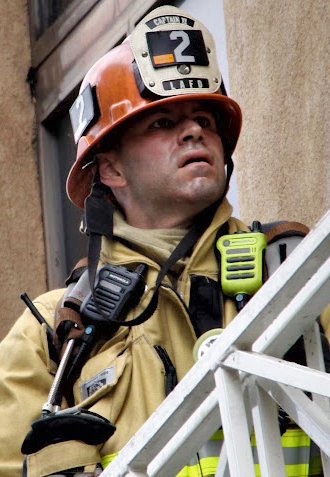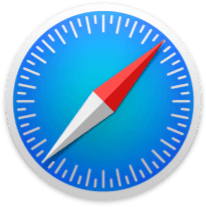
Role: Fire Captain II
Industry/Sector: Public Safety
Company Name: Los Angeles Fire Department
Year graduated from Cal Poly Humboldt: 2023
Please tell us about yourself.
I was born and raised in Ventura County, California. My father came to the United States from Mexico with his family when he was 7, and they found a home in the San Fernando Valley. My mother was born and raised in the San Fernando Valley. They moved to Thousand Oaks shortly after they were married, and that’s where I was raised. I am the middle of three children. My father was a firefighter for 36 years, and growing up, that’s pretty much all I ever wanted to be. When I was a senior in high school, I got my EMT certificate, and when I graduated, I worked on an ambulance while taking classes at a local community college. This is when I began testing for local fire departments, but I really only wanted to work for the Los Angeles City Fire Department. When I was 19, I enrolled in the paramedic program through UCLA, and graduated when I was 20. Shortly after finishing the program, I got a call from the LAFD, and I began the academy (called the Drill Tower) in April of 2003, and I have been with the LAFD ever since. I have held the ranks of firefighter, firefighter/paramedic, engineer, captain I, and captain II. I am currently assigned as the station commander at Fire Station 60 in North Hollywood, and have been detailed to the LAFD’s COVID Testing and Vaccination Division since December of 2020, where we have tested almost 5 million and provided almost 1.5 million vaccinations since the beginning of the pandemic, at sites both large (Dodger Stadium, USC) and small (mobile units, homebound, homeless, and nursing facilities). I met my wife, an ER nurse at UCLA, in 2005. She has gone on to receive her Ph.D in nursing, and has helped to provide care training for vulnerable populations in India and South Africa, as well as taught at UCLA. We have 4 children ages 2-10. We live in Simi Valley, California.
What motivated you to enroll in the Leadership Studies program?
It has been my goal to further my education since I got hired on with the Fire Department. I didn’t get to finish my associates at Moorpark College, so I went back in 2011 and finished up, although it took me 4 years to do it. The next hurdle was my bachelor’s program, but I wanted to be able to attend remotely. It’s obviously difficult with kids to focus on much else, so I wanted something that I could fit into. I have other interests outside of leadership and the Fire Department, but leadership seemed like a natural path for me, and this was a program about which other LAFD members have had great things to say. I spoke with Betsy Rogers [Humboldt academic advisor] several times, and she really inspired me to take the step. I think leadership programs are the wave of the future for public service, and I am excited to be part of it.
How has the Leadership Studies program positively impacted your life?
The biggest impact has been to change my frame of mind regarding leadership in the Fire Service, and to narrow my focus a little bit. I consider myself to be a good leader, but there are challenges down the road that I would like to be prepared to meet. I have [leadership] skills that I either have had innately, or have acquired throughout my career, but there has always been a gap in the educational aspect, and that’s where the Leadership Studies program at Humboldt has really opened my eyes. Whether I am fulfilling my daily responsibilities at the Fire Station, or working with Fire Department administration and management on future projects, this program has had a positive impact, and I am only in my first semester!
What were/are the most memorable growth moments for you in the program?
Tough to say so far. In the first course, you complete a “Strengthsfinder” exercise in which you answer a bunch of questions, and they are able to identify a half dozen or so strengths that you may or may not realize you have. After reflecting on them, you go and share them with someone close to you, a mentor or partner. Sharing these with my wife, listening to what she had to say, and add to the material, this was a pretty big growth moment for me. Sometimes you have to step outside of your own head to realize where your strengths (and weaknesses) lie.
What are your goals after completing the Leadership Studies program?
The skills learned here are very applicable to my current position, and even more so in higher ranks and responsibilities within the organization. Being able to apply these skills as a fire captain is my most immediate goal, and if I decide to promote further, the skills will only enhance my readiness to take on more leadership responsibilities.
What else would you like to share about your experience as a student in the Leadership Studies program?
The biggest surprise to me has been how much I have been challenged. The assignments have pushed me to be more thoughtful and introspective. This is not an easy program; it requires commitment and perseverance, but it is more than worth the effort. I know I am going to come out the other side with knowledge and experience that is going to be invaluable.



